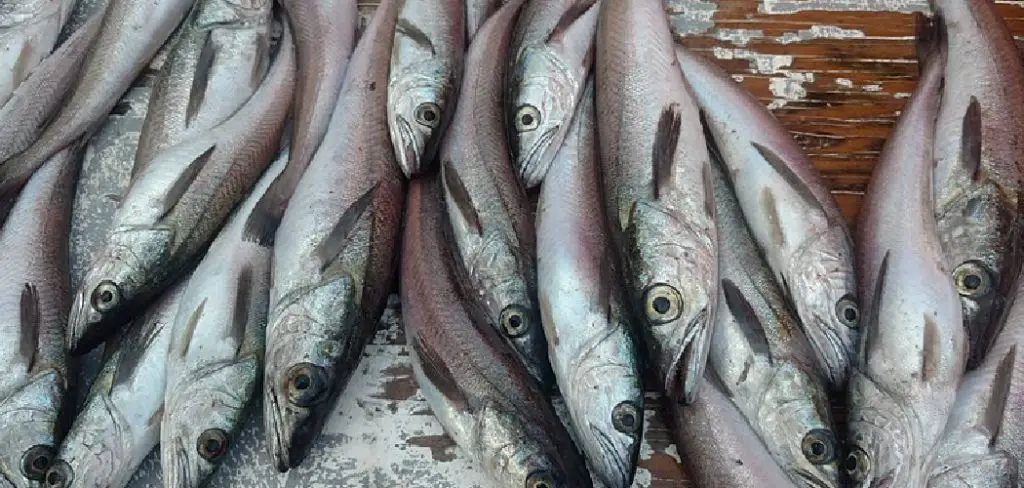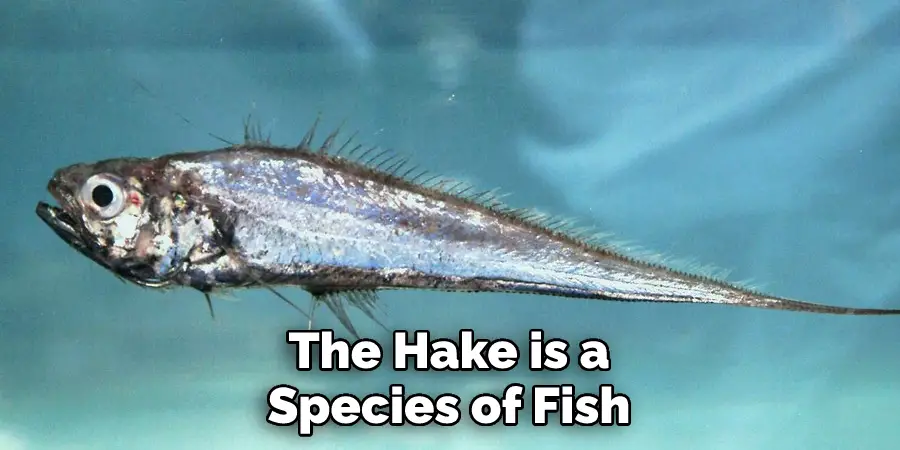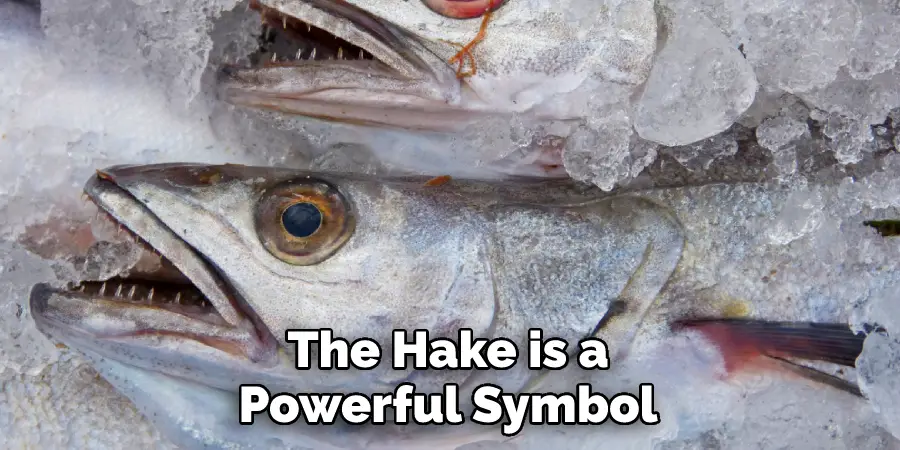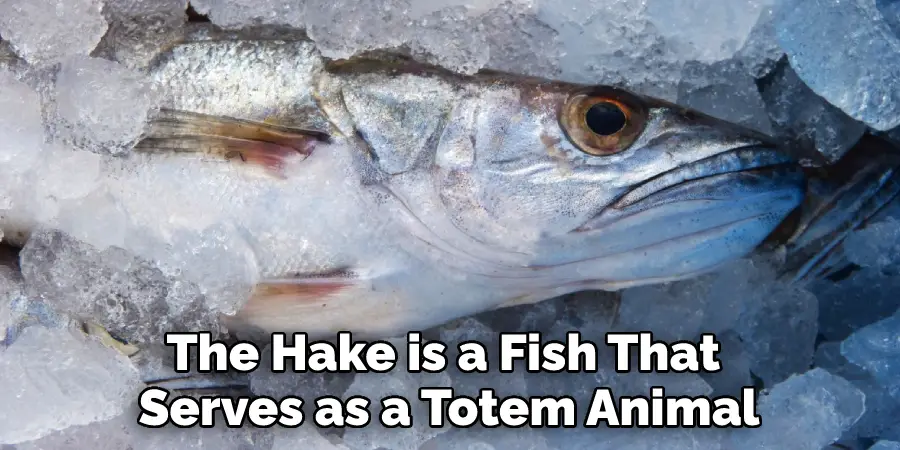Did you know that hake has a spiritual meaning? This little-known yet meaningful symbol is steeped in symbolism and tradition, with roots tracing back through ancient cultures. It’s the perfect way to add an extra layer of importance and value to your current spiritual practices or beliefs.

By understanding what it means when a hake appears in our lives—or minds—we can open ourselves up to new possibilities, insights, and guidance from the Universe.
In this blog post, we’ll be discussing the various symbolic meanings associated with the hake and how we can better integrate them into our everyday practice! So keep reading to learn more about the hake spiritual meaning.
Hake Symbolism and Meaning
Hake Native American Symbolism
Native Americans recognize the hake fish as a symbol of adaptability, resourcefulness, and intelligence. In addition, hake is unexpectedly devoted to their young once hatched – a trait that reflects the bond between family and community for Native American tribes.
This symbolism also conveys the importance of initiating change when necessary to survive. The resilience of the hake fish provides lessons that many Native American tribes have been using for centuries to guide successful living practices.
Indeed, this connection to animals embodying key values is part of what makes Native Americans’ relationship with nature so unique and inspiring.
Hake Eastern Symbolism
The hake is a species of fish whose symbolism in eastern cultures dates back centuries and ties into their mythology and traditional customs. For example, in Chinese culture, the hake symbolizes male fertility and strength, often associated with dragons due to a shared shape between the scales of the sea creature versus the mythical counterpart.

Further, representations of the fish in Japanese culture can be found associated with kami or gods, which are prayers for success. Additionally, traditionally in Japan, it was believed that if a man ate this particular type of fish, he could develop into someone much stronger physically and mentally.
Today, many still believe this traditional view and value the symbols surrounding this species of fish due to their powerful look and underlying message in Eastern cultures.
Hake Christianity Symbolism
Christianity is a faith full of symbolism. One of the most prominent symbols in Christianity is the hake, a type of fish used throughout centuries to represent the faith.
The hake symbolizes many aspects of Christianity, such as multiple biblical stories involving fishing, Jesus’s calling of his apostles to be “fishers of men,” baptism signified by water, and Christ’s miracle with loaves and fishes.
Additionally, it is thought that the Greek word for fish (Iktos) can also be an acronym to mean “Jesus Christ, God, Son, Savior.” Ultimately, no matter how you look at it, the hake encompasses so much about what it means to be a Christian and serves as an important symbol for believers everywhere.
Hake Celtic Symbolism
Hake fish has always played an interesting role in Celtic symbolism. For example, the salmon of knowledge in Gaelic mythology is a mythical creature better known as a “Hachinger.” An often misunderstood symbol of power and luck, hatching fish can also be interpreted as a metaphor for the spirit’s journey through time.
In ancient Celtic drawings, these fish appear with swords or wings, further suggesting their place as a potent symbol that speaks to both luck and spiritual growth. Hake fish then reminds us of the majesty and importance of the natural world while bringing confidence that even in the darkest times, our spirit remains unbroken and keeps us striving towards a better future.
Hake African Symbolism
Hake, or Hennenfish, is a culturally significant African fish found in rivers and coastal regions. Symbolically, the hake has been revered by many African cultures due to its strong reputation as a sacrificial offering for appeasing their ancestors. In addition, it symbolized hope for people who felt his presence in the rivers and lakes that provided food for tribes.
To many Africans, the hake represented renewal and fertility, embodying the rejuvenating power of nature’s cycles of life and death. In addition to spiritual significance, hake was also believed to bring economic stability and fortune with its high demand in some African markets.
From its symbolic representation to its actual value in trading markets, the hake has been an essential part of African culture for centuries.
Hake Spiritual Meaning
The hake is a powerful symbol of transformation, often associated with the power of the moon. In many cultures, it is believed to bring balance and harmony to individuals and communities alike.
As an ever-changing creature, it represents life’s dynamic nature, helping us embrace and flow with both changes within ourselves and in our external environment.

What’s more, it’s elusive – yet strong- presence reminds us of our spiritual connection to something greater beyond our physical world. As such, this mystical fish can be seen as a call for us to stay open and receptive during times of transition or difficulty – for truly, there are gifts even in those shadowy places.
Hake in Dreams
Dreaming about hake can often symbolize a need for cleansing. In some cultures, hake is considered to bring good luck and fortune; thus, dreaming of them may indicate that the dreamer seeks positivity in their life.
Hake may also symbolize innocence and purity– suggesting that the dreamer desires new beginnings or a fresh start to something. Understanding the deeper meaning behind our dreams provides insight into our deepest desires, fears, and thoughts, so if you keep appearing in your dreams, consider what message they could be trying to send to you.
Hake Encounters and Omens
Hake encounters and omens often come hand-in-hand throughout various cultures, from the most ancient to the most modern. For example, an old Irish proverb proclaims, “a hatching of hakes is a sure sign of rain,” while in some areas of Northern England, seeing a fish out of water is interpreted as an omen of good luck.
Hake encounters have also been believed to be portents of success in battles or travels. People observing these omens would take it as an opportunity to express faith, fear, or even celebration. Superstitions like these still abide in our culture today, while others continue to ebb away into oblivion.
Hake’s Meaning in Mythology and Folklore
Although the hake is an unassuming little fish found in the waters of the Atlantic and Mediterranean, it carries deep meaning in mythology and folklore. In Ancient Greece, hake is once said to have saved a city near Sparta by defeating giants.
The fish was used as a symbol of strength and courage during sticky battles. Later on, in Norse mythology, Aegir – king of sea monsters – served the gods fresh hake during feasts. The creature was seen as an offering to the powerful gods.
Moving to ancient Irish legends, it’s said hake could bless mortals with increased fertility if eaten; this also applies to agricultural production such as crops and pastures. Historically, hake has been chosen for its might and charm, symbolizing power, fertility, and wealth in cultures around the world.
Hake Totem Animal
The hake is a fish that serves as a totem animal for communities worldwide. Its symbolism has been adopted by cultures past and present and is closely associated with ideas of strength, resilience, and resourcefulness.

For instance, many tribes in the United States see it as a symbol of courage and fortitude because of its adaptive behavior — even when faced with adversity or scarce resources, it is known to survive.
Even today, fishermen admire the hake for its ability to escape predators and stay alive regardless of what mother nature throws at it. All these qualities make hake an ideal totem animal that anyone can relate to.
Hake Tattoo Meaning
The hake tattoo is a popular Polynesian tattooing design that symbolizes protection. Originating from the Samoan tribe, the hake pattern is used as a traditional ritual marking to ward off negative forces and unwanted influences.
Popular among both men and women, this distinctive design integrates multiple shapes into a form of tribal shield art that is full of meaning and power. It’s a great way to express bodily acceptance and strength in one striking body art!
Hake Spirit Animal
The hake fish spirit animal encourages us to explore our depths and venture outside of our comfort zone. It is the symbol of boldness and bravery, urging us to use our instinctive knowledge and acquired wisdom to find the answers we seek.
While the hake fish spirit animal may seem mysterious and even menacing, it is a source of confidence that can help us stay true to who we are and take calculated risks in pursuit of adventure.
This powerful totem reminds us that with strength, courage, perseverance, dedication, and faith, we can always reach our goals – no matter how tough the waters may be.

Conclusion
The hake symbolizes the power of knowledge and understanding. It serves as a reminder to ponder life’s mysteries, seek out wisdom, and strive for greater insights into our existence.
The hake is an excellent totem animal for those who want to gain a deeper awareness of the spiritual world and its place in it. Its presence can also help to strengthen one’s resolve, guiding them in their journey towards a more meaningful life.
Ultimately, it is up to us to make the most of what the hake has given us. Our responsibility is to nurture and care for ourselves and others to create greater harmony and balance in our lives. Thanks for reading our post about the hake spiritual meaning.
You Can Check It Out To Bonito Spiritual Meaning, Symbolism and Totem
